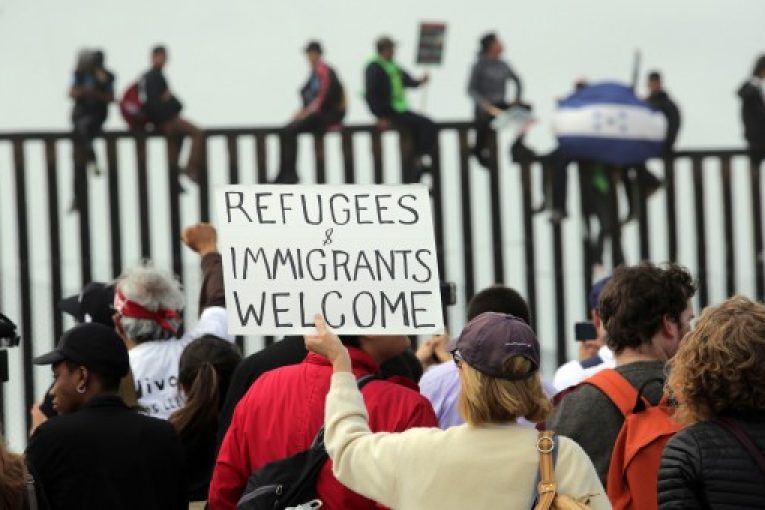

By Lizet Gonzalez
ILLINOIS – “Today marks the end of a chapter of a cruel policy against low-income immigrants of color,” said Militza M. Pagán, staff attorney at Center on Poverty Law last week, marking the end of public charge rule nationwide.
Public charge rule, established in 2019 during the Trump administration, imposed strict financial requirements that made it harder for lower-income migrants to get green cards and visas. The U.S. Department of Justice ended the rule on March 9, 2021.
It also ended a two year litigation battle against the Department of Homeland Security to end the public charge rule.
The litigation battle Illinois et al. v. Mayorkas et al. was first brought to Illinois Northern District court by four legal action groups on behalf of the Illinois Coalition for Immigrant and Refugee Rights.
They argued that the rule violated the “Administrative Procedure Act and the Equal Protection Clause of the 5th amendment […] and discriminates against immigrants of color.” The Illinois  District court rendered the rule void on Nov. 2, 2020.
District court rendered the rule void on Nov. 2, 2020.
On March 9, 2021, the rule’s end was finalized by the U.S. Department of Justice invalidating the rule nationwide. It immediately stopped the use of the public charge rule on all pending immigration applications and petitions going forward.
All applications will be reviewed under the 1999 interim Field Guidance on public charge.
Public charge rule states that an applicant processing any immigration application should note in their application if they have used public benefits. This was taken into consideration to prove whether the individual would be a “public charge” or overburden the US in the future if they are granted immigration status.
Terminating the public charge rule resulted in many of the members in the litigation battle expressing their relief for the immigrant community.
“Today, we celebrate that immigrants can seek public benefits without fearing future repercussions, and that immigrants will not be barred from gaining status because they are too old, too young, not educated enough, or not wealthy enough,” said Luvia Quiñones, Director of Health Policy at the ICIRR.
“This is the first step to rebuilding trust between immigrants and the government, which is especially crucial as we work to finally bring an end to the pandemic,” added Quiñones.
Pagán added, “Families should not have to worry if securing their medical needs and their next meal will jeopardize their stay and future in this country. The end of this rule will provide immigrant communities much needed relief during an extremely difficult time.”
Ending this public charge rule came at a time when many individuals’ immigrants and non- immigrants alike are turning to public benefits for their basic necessities.
This reassures the immigrant community that they can seek for public benefits in the current crisis of the pandemic without any fear. Lifting fear of repercussions in any future or current efforts on their admission applications.
https://www.uscis.gov/archive/public-charge-fact-sheet
Lizet Gonzalez is in her final year at San Francisco State University, majoring in Criminal Justice and Spanish. Born in Acapulco Mexico but currently resides in the bay area.
To sign up for our new newsletter – Everyday Injustice – https://tinyurl.com/yyultcf9
Support our work – to become a sustaining at $5 – $10- $25 per month hit the link: